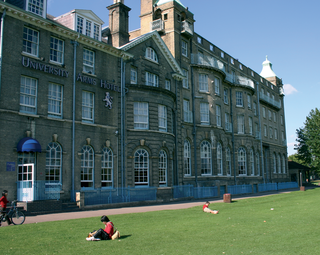
By Paul Adams
The Free Software community is maturing at a great pace. Individual projects have become more reliant on non-developers for artwork, marketing, legal advice, and more. The trend has been for project conferences to become less technical in nature, too. This was not the case with LinuxConf Europe [1].
LinuxConf Europe, organized by the UK Unix and Open Systems Users Group [2] and German Unix Users Group [3], was a four-day gathering aimed directly at developers.
This new conference is an offshoot of the UKUUG's Linux Developers' Conferences and GUUG's Linux-Kongress. It is not surprising that LinuxConf Europe makes even DebConf look tame.
Because of the more technical focus of LinuxConf Europe, there were no keynote presentations during the conference. Instead, attendees were able to select from more than 60 presentations and tutorials, in addition to impromptu meetings in the various halls and foyers of the venue.
The closest thing to a keynote came from David Hartley of Cambridge University who, over dinner at the end of the first day, made a presentation on the history of computing at the internationally renowned institution. For the rest of the program, talks were arranged into sessions on related topics. The scope of these sessions and presentations was broad, covering topics as diverse as power management, embedded Linux, and KDE 4.
There has been much excitement in the Free Software community over the growth of mobile Linux-based devices, such as OpenMoko [4] and Trolltech's [5] phones as well as Nokia's highly successful N770 and N800 tablets. In his talk about power consumption, Arjan van de Ven of Intel warned that software developers will have to think harder about their coding if Linux is to succeed on devices with limited power resources.
Next, Matthew Garrett's discussion, called "Making Linux Suck Less - Reducing Power Consumption," focused on how simple changes in coding technique could make huge changes in power consumption. Garrett explained that his work in this field has saved more energy than he consumed by flying to conferences this summer.
While attendees mingled between talks and meetings, it was easy to see where the more interesting conversations were taking place. For example, attendees gathered around Alan Cox and Linus Torvalds, who arrived early for the Linux Kernel Developer Summit and agreed to give an advanced GIT tutorial. Inevitably, Torvalds' session turned into a question and answer session between the kernel king and attendees.
LinuxConf Europe felt like a "working meeting" - even when attendees gathered and chatted over coffee, conversations covered possible solutions to development problems.
That said, Torvalds commented that face-to-face meetings such as LinuxConf Europe only add to the social life of the kernel and not to the technical aspects, at least not formally.
This year's LinuxConf Europe concluded with a day of well-attended tutorials. And if the developer-centric nature of the conference is not a sign of maturity in the kernel project, the fact that about 100 delegates stayed an extra day to learn more about the product they develop is.
Even if Torvalds does not agree, conferences such as LinuxConf Europe clearly play a huge part in the community. The LinuxConf Europe conference was well organized, informative, and entertaining. Many kernel developers are already looking forward to next year's gathering.
| INFO |
|
[1] LinuxConf Europe website: http://www.linuxconf.eu/2007/
[2] UKUUG website: http://www.ukuug.org/ [3] German Unix User Group: http://www.guug.de/ [4] OpenMoko: http://openmoko.org/ [5] Trolltech Qtopia Greenphone: http://trolltech.com/products/qtopia/greenphone/ |